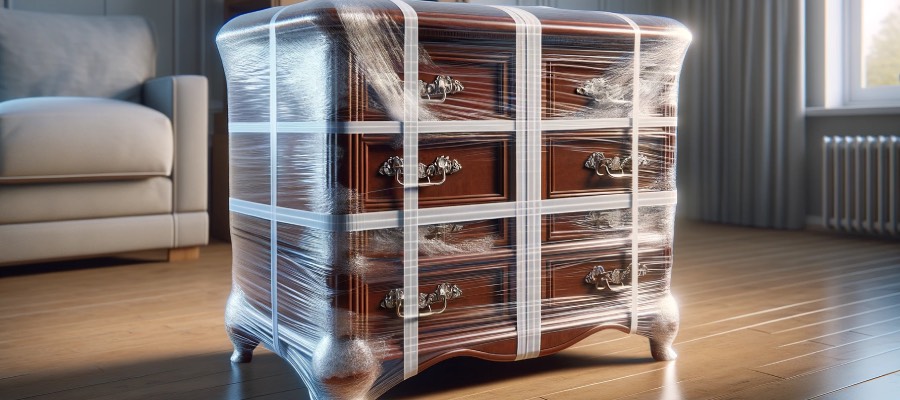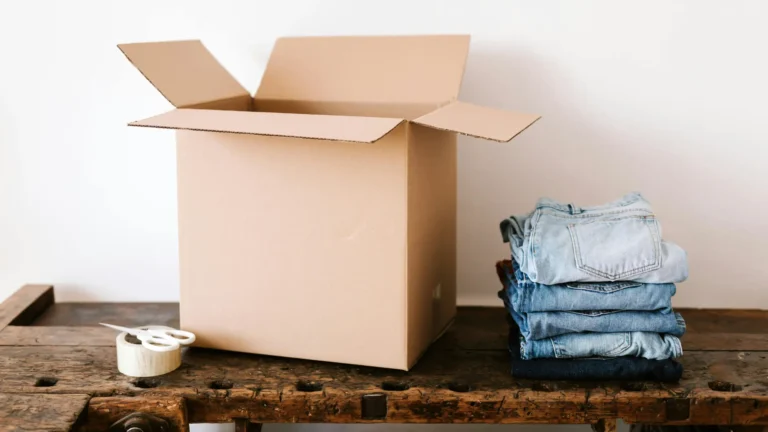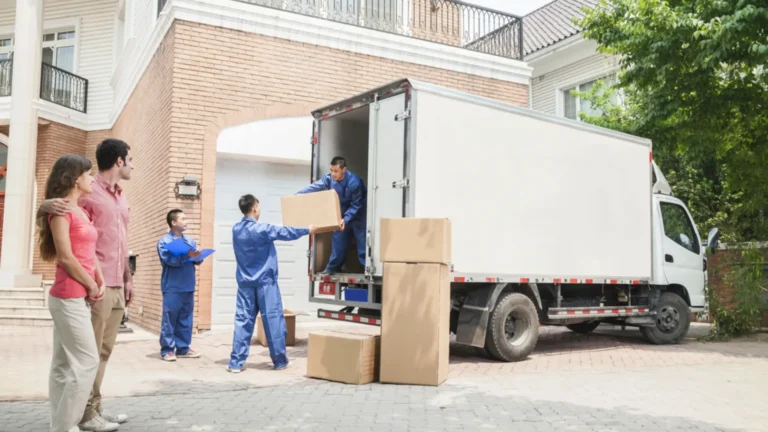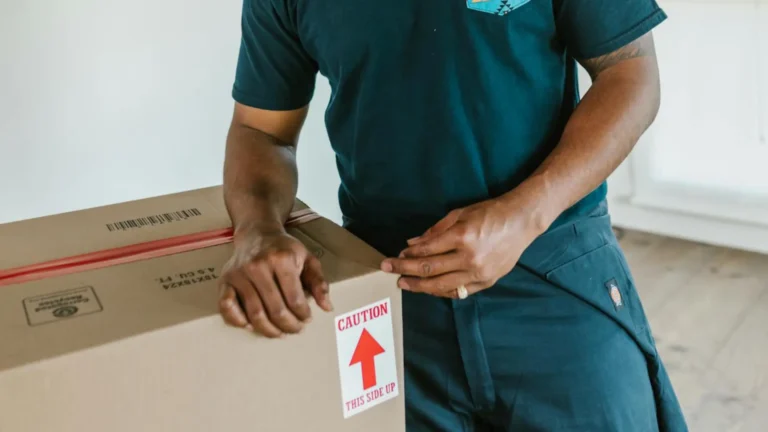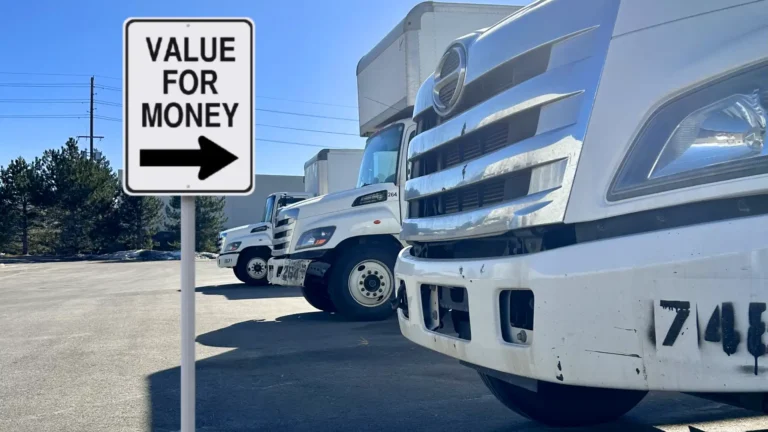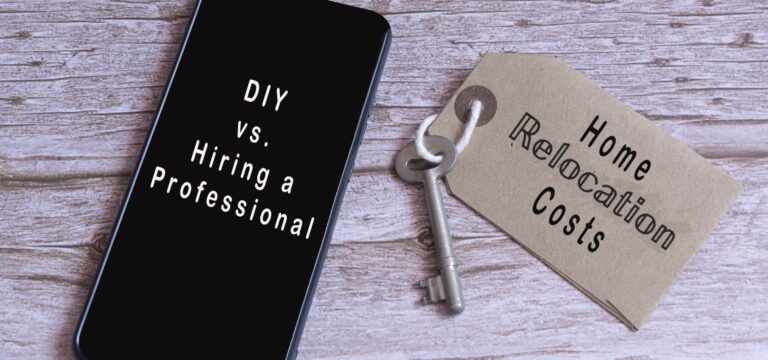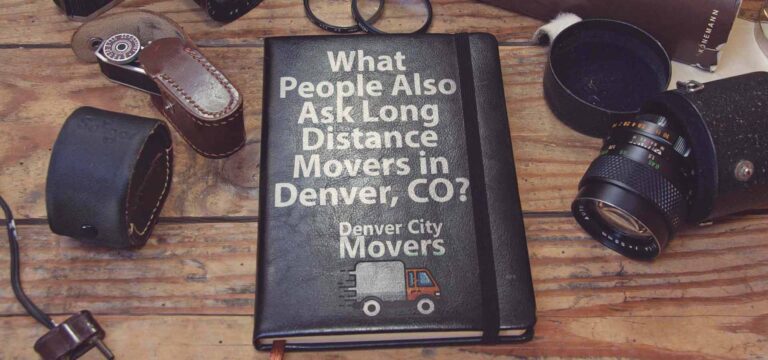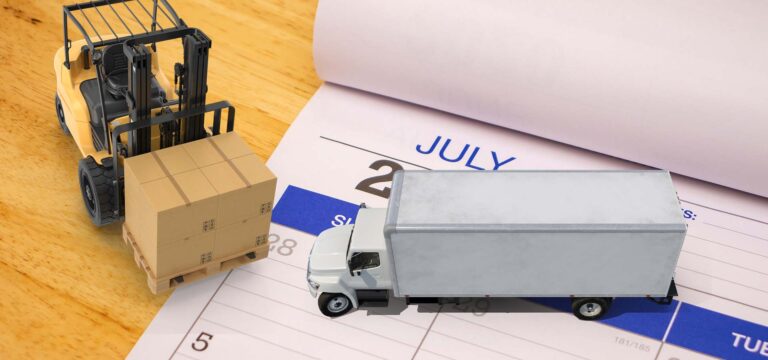Is it cheaper to hire movers?
It depends on your situation. With a typical studio, one or two-bedroom apartments, hiring movers will be cheaper than renting a truck. However, with a three-bedroom home and larger, moving it yourself will be cheaper than hiring movers. However, that does not necessarily make your move more efficient or safer!
You can estimate the cost of your move by figuring out how much it would be to pay for packing materials like boxes and blankets. Not to mention fuel, friends to help you prepare and load up, professional laborers who will only assist in filling up your vehicle, and if you decide to rent a truck, how much you will be paying in rental costs as well as insurance and mileage.
With professional movers, you will receive a quote covering all fuel, miles, tolls, taxes, labor, disassembly, reassembly, and moving blankets.

How much do movers cost in Colorado?
The cost of long-distance movers varies depending on the size/weight of your belongings, the distance of your move, and the company you choose to work with.
However, long-distance moves typically cost more than local moves. Be prepared to fork out anywhere from $2,000 to $10,000 for a long-distance move. That’s a wide margin but remember that no two moves are alike.
You could be relocating out of your parent’s home for the first time with minimal furniture and boxes, or you could be moving a large family and requiring ancillary services such as company-packed boxes.
If this is your first time relocating out of state but has experience with local movers, it’s worth mentioning that long-distance movers also cost more than local movers because of the time it takes to drive your belongings across state lines.
These types of moves are typically done with a semi-trailer. The overall volume of your shipment will also affect the amount you pay for long-distance relocation services.
Is it OK not to tip movers?
Most people choose to tip their movers, but it is not required. If you feel your movers did an excellent job, you can list them 15-20% of the cost of the move. If you think your movers did not do an excellent job, you are not required to tip them.
It is essential to thank your movers for their hard work, but tipping them, rather than being an automatic reflex, should be a personal choice based on how well you were treated and if your belongings arrived safely. You know what they say: “Tis better to give than to receive”!
What is the cheapest way to move?
There are a few different ways to move cheaply – you can drive by yourself, with friends, or with professional movers. However, the cheapest way to proceed is usually to hire professional movers.
This is because professional movers can save you time and money by helping you pack your belongings and move them safely. They also know how to navigate through traffic and avoid tolls, which can save you money on your move.
Far too many people look at the one-time quote of a professional mover and feel so confidant that they can beat that price if they attempt to take on the relocation by themselves.
However, once you factor in every single expense: fuel, overnight accommodation if you’re relocating thousands of miles away, packing materials for your fragile pieces, hiring laborers (or even some neighbors to help you out), not to mention the stress you will inflict upon yourself if you are not mentally up to the challenge.
Combine all of those factors, and soon you will see why professional movers are your one-stop shop for you and why they are the more economical option.
Why is hiring movers so expensive?
There are a few reasons why hiring movers can be expensive:
- Professional movers have experience navigating through traffic and avoiding tolls, which can save you money on your move.
- Movers have the knowledge and tools to pack their belongings safely, preventing any damage during transport.
- Movers are insured if any of your belongings are damaged or lost during the move.
It’s also worth noting that movers are employees and thus deserve a fair wage. If you hire a mover to help you out, they are entitled to make a living for their hard work.
Movers can be expensive; we won’t beat about the bush. Relocating a long distance is a long and arduous endeavor and most likely will be the most costly thing you will pay for in many years (besides your new home, of course).
However, once you consider the points made in the previous questions, it will be easier for you to recognize and appreciate where your money is being invested.

Do movers move everything?
Unfortunately, movers do not move everything. If you plan on making a long-distance move, it would be best to get rid of any items that are not 100% necessary before the move.
Movers will only transport your belongings if they follow DOT regulations, so to keep your relocation costs low, remember that there are some things that you must do yourself.
There are a few items that movers are prohibited from moving, including hazardous materials such as flammable liquids, pressurized containers, firearms, living creatures, including plants and pets. If you have any of these items in your home, you will need to take them with you when you move.
Weight restrictions also bind movers. If you have a single article that weighs over 700lbs, you will most likely need to hire a specialist to move this for you. Such items could be reinforced gun safes, grand pianos, vending machines, large workshop machinery, etc.
It is safer to err on the side of caution and consult with your moving coordinator as to what can and cannot be moved. We understand it’s annoying to be inconvenienced, but the consequences of a mismanaged move due to contraband items could be far worse.
What are typical moving costs?
The cost of hiring professional movers can vary depending on the size and distance of your move. However, most professional movers will charge either by the volume or the weight (volume is preferred as it is far easier to quantify ahead of time than after everything is already loaded up).
In addition, the usual charges are for fuel, miles, tolls and taxes, loading and unloading at either point, the labor to prepare your furniture safely for long-distance travel.
Optional costs would count for any boxing your movers need to carry out themselves. This could range from fragile packing – where we box up your mirrors, artwork, glass/marble/granite/slate tabletops – to general box packing where we supply and pack your moving boxes, which people usually prefer to undertake themselves have the time.
How much do movers cost for a 2 bedroom apartment?
Typically, the cost to move a 2 bedroom apartment will range from $2,500 to $4,500. This price depends on various factors, including the distance of the move, the size of the shipment, and the type of services that are included.
Typically, a two-bedroom apartment in a modern apartment complex will contain anywhere from 700 – 1400 cubic feet worth of items depending on if you have an onsite storage unit or just a good old-fashioned hoarder (make this the perfect opportunity to throw a yard sale). These metrics are essential for the mover since we charge for the overall volume of your goods.
For moving companies, it is more cost-efficient to move larger shipments than smaller ones, so the more prominent your cargo is, the cheaper it will be per cubic foot. A 1,000 cubic foot move will have a smaller price per cf than a 500 cubic foot shipment.

Do you feed movers?
The short answer is simply no; you are under no obligation to prepare refreshments. Movers are advised to bring their food for the day, but they will also be provided with lunch and meal breaks. Some movers will work a 9-5 shift, while others may work later hours. This will depend on how long your move is and what you would like them to do.
If you would like to reward your movers with a snack based on the work they have been doing, then they will certainly appreciate the offer but will never take your generosity for granted.
Some movers may even politely decline if they have already eaten or plan to eat later in the day. Water will always be appreciated, especially in the summer months.
What no respectful mover will ever do is demand food from you or send you on a guilt trip for not making the offer in the first place. Call your moving coordinator immediately if you find yourself in this awkward situation.
Do you pay movers before or after?
This is a common question that customers have when working with professional movers. Typically, no mover will demand total payment upfront before a finger is even lifted, so be aware of any moving companies who charge a significantly lower quote but demand full payment in advance. Therein lies the bait-and-switch!
The most typical stages of payment are as follows:
- Deposit: a small sum is required once you decide to give your moving company the green light. Usually, the deposit will be $100-200, a token amount that can be paid over the phone with your moving coordinator. This payment is to secure your move date and ensure that you honor the business agreement rather than continue to shop around. Should you cancel your reservation for whatever reason, the deposit should be refundable up to a certain point before your move date – typically before the final 48 hours.
- Pickup: Once the movers arrive, 50-60% of the value of your quote will be due, typically paid to the moving foreman by card, check, cash, or money order. This sum is required before the movers begin the preparation and heavy labor of loading up your belongings. This payment stage also covers the logistics of bringing your shipment back to the movers’ facility and the long-distance leg of shipping your goods.
- Delivery: The balance will be due here once the movers arrive at your new home. This payment is usually paid in liquid (cash, cashier’s check, money order) rather than credit card or personal check because the mover may not be in the position to verify the card/check payment on the spot.

Does everything need to be packed in boxes for movers?
No, not everything needs to be in boxes – furniture, for example, does not need to be boxed – but it is always helpful if it is. This will help the movers move your belongings more quickly and efficiently and prevent any damage from occurring. If you cannot box up all of your items, the movers can do it for you, adding additional costs to your move.
One of our policies is that if an object is small enough to fit inside a box, it belongs inside a box. So this goes for books, toys, tools, utensils, kitchenware, electronic equipment, knick-knacks, etc. Fragile items such as desktop picture frames, ornaments, and anything that requires a lot of padding should be boxed.
Another situation you may be in is that you cannot undertake any box packing before the move. This could be the result of a busy work schedule, needing to fly out to your destination to finalize your new home, managing a large family of kids, or you may not be physically capable due to your age or a disability.
In any of these circumstances, your moving coordinator will discuss company packing services whereby the movers will arrive with their boxes and be fully prepared to take care of all the boxing tasks required.
What is the average cost of moving a 3 bedroom house?
Typically, the cost to move a 3 bedroom house will range from $5,000 to $8,000. This price depends on various factors, including the distance of the move, the size of the shipment, and the type of services that are included.
Usually, a three-bedroom apartment will contain anywhere from 1500 – 2000 cubic feet worth of items. So the average cost of moving a 3 bedroom house can vary drastically depending on several factors such as what state you’re moving from and to, the distance to travel, and your home’s total square footage.
To get a perception of how much movers typically charge for a move like yours, please request a free in-home inspection so they can visit your property, verify the size of your shipment with their own eyes, and approach you with a not-to-exceed price.

How much does it cost to move a 2000 sq ft house?
The cost of relocating a 2000 sq ft house will typically range from $7,000 to $10,000. Like the two-bed apartment or the three-bed house scenario, this price will depend on the distance of the move, the size of the shipment, and the type of services included.
Your moving coordinator will be able to compile a free quote for you after a brief 10-minute conversation, so it’s worth picking up the phone and reaching out.
How should I pack to move into an apartment?
You can perform several things to make your move to your apartment easier.
First, pack any heavy-duty items, such as the contents of bookshelves or armoires, at the bottom of boxes. This will make it easier to carry them up flights of stairs or down halls without breaking your back.
Second, use lots of packing paper and stretch wrap to protect your furniture from scratches and dings. Your movers will blanket and pad your furniture anyway, but if you feel like making your contribution will offer better peace of mind, please do so!
Third, organize your kitchen before you leave so everything has a designated spot for unpacking on the other end.
Fourth, always try and fill up any space in a box with padding material, so there’s never any empty room inside of it – this will help prevent accidental damage during transit and protect your valuables from coming into contact with each other getting scratched or scraped. You can learn more about what you need to do before the movers arrive.

What do I need to know before hiring movers?
There are lots of things to think about before you hire movers. You should first call your local Better Business Bureau to see if the company has any known disputes or complaints against them.
That said, the best source of information is the Department of Transportation’s Movers Directory. Here you will find an index of every licensed carrier and broker in the country, and you can review any and all official stats (number of vehicles, complaints, official address, etc.).
Each mover should have a USDOT number listed on their website. If they do not, or if you’re having trouble locating them on the Movers Directory, consider these to be red flags and move on.
Next, take inventory of all your possessions so the moving company can get an accurate estimate. Let them know how many rooms you have and estimate the total items you plan to pack yourself.
You also need to understand what needs to be taken apart and stay together. If your house has a lot of high-priced art or antiques, they may require additional TLC, such as a wooden crating service.
Above all else, ensure that when you decide on a moving company, you interview at least two others so you can get a good feel for the level of customer service they provide and how much it’ll cost. Due diligence is critical!
Do moving companies bring boxes?
Working on the basis that it’s better to have them and not need them than need them and not have them, most movers bring their boxes. But note that the majority of companies charge a fee for it and the labor to pack the box.
The vast majority of moving clients tend to look after purchasing and packing their moving boxes while leaving the furniture and loading it to the movers. This is so they can prepare for the move several days before the movers arrive.
If you require that your mover brings boxes, please give as much detail to your coordinator as possible:
- Do you need your mover to bring boxes for everything?
- Do you only need boxes for a specific type of items such as mirrors/artwork or your wardrobe contents?
- Do you need your movers to bring and pack boxes for a particular part of your home (such as the kitchen) while you’re looking after the rest?
- Does any furniture in your home require boxing? This usually applies to articles that contain glass, such as curios or china cabinets.
Should you empty drawers when moving?
Yes. Everything in your drawers needs to be boxed or packed into suitcases. Many clients tend to think that the movers are afraid of lifting heavy furniture and are just looking for a way to make their job easier. But the simple truth is that weight is the least of the potential problems that could arise.
There are multiple reasons for emptying your dressers and drawers ahead of time:
Firstly, drawers filled with loose items can cause the article of furniture to be unevenly weighted, which will create problems while in transit.
Secondly, any loose items in drawers may knock around while the moving truck is on the road, which could cause undue stress to the integrity of the drawers, even if the exterior is padded and blanketed.
Do movers steal your stuff?
All of our movers are carefully vetted before joining our team. This includes searching for any prior incidences of theft. As a licensed, bonded, and insured mover, we will protect your move and its belongings.
You may want to make sure you have homeowners/renters insurance that covers relocation, which will further protect all of your items in the event of any disappearances.
Do you lose money when you move?
If you mean cash, then the straight answer is no because no mover will accept transporting money for you.
In terms of expenses, one way to save money is by packing your belongings. This can be time-consuming, but it can save you a lot of money. You can also save money by hiring a moving company that provides packing services. This will save you a lot of stress when packing your belongings.
Another way to save money is choosing a carrier rather than a broker. Brokers are intermediaries who reach out to carriers for you. They usually charge a high, partially refundable deposit before passing you off to a random carrier whose reputation you’re not aware of. So you really don’t know the integrity of the movers who will turn up at your door.
Carriers, however, are movers with their own vehicles, movers, and drivers. They charge you a fairer price – not to be confused with a seemingly lower price – and you only have to deal with one company, not several. So the opportunity for managing your costs becomes more streamlined.

Do movers pack liquids?
Movers typically do not pack liquids due to the inherent risk during transport. Liquids can spill, damage other items in the moving truck, ignite, and create a safety hazard for both the movers and anyone else who may be around.
If you have items that contain liquids – such as shampoo, conditioner, body wash, etc. – you will need to pack them yourself in a sturdy container that can prevent spills.
This also applies to consumable liquids such as juice, bottled water, alcohol, etc. If you have a significant amount of alcohol to ship, specialist wine craters can look after this service for you.
Will movers pick up from two locations?
Yes. Movers will reach out to both locations and pick up the contents therein.
There are additional charges to consider. Factoring in the distance between the primary and secondary pickup points is most important, and the price for the second stop will be charged on this basis.
Also, suppose the second location is a storage facility. In that case, all the contents must be in boxes and ready to be loaded (unless you have already requested a company-packing service).
The contents of both locations will be tagged and labeled before being amalgamated into one large shipment, which will make the cross-country move.
What do you do while movers are moving?
When the movers arrive, there are some things you can do to make the process easier:
- Make sure all your belongings are already packed and ready to go before the movers arrive. This will save time and hassle.
- Take the foreman on a tour of your home so he can get an idea of where he should start packing.
- Be prepared for a long day. Movers typically work long hours, so be patient and understanding with them. They prepare your worldly possessions for long-distance travel so remember that this takes time and care.
- Watch how your belongings are be all times. Movers can only do so much – it’s up to you to keep an eye on your belongings and make sure they’re not being damaged or stolen.
- Once the movers are done and loaded up everything, carry out a final walkthrough of your home with your moving foreman. This way, you can ensure that everything you want to relocate has been removed. The foreman may ask you to sign off on this, so be sure to check everywhere for any wayward boxes.

Can you leave movers alone?
Movers should not be left alone in your home and should be supervised at all times. They are entrusted with worldly possessions and should be treated as such. You do need not always be in the same room as them but be sure to remain on the property and check in on their work occasionally.
If you have any valuables such as original artwork, antiques, heirlooms, and so on, contact the moving company before the move date to arrange for security to be present.
Movers should also not be left alone if there is a pet in your home since the pet may panic with so many strangers in their home, resulting in damage or injury.
How do movers pack clothes?
Usually, clients prefer to pack their clothes. However, your movers can provide packing services where necessary.
Movers will pack clothing by category and ensure that it is packed safely. For example, movers may place all of the clothes in one wardrobe box and then fill it with clothes before placing a divider sheet down and then packing more clothes on top of that. These sheets allow for some breathing room.
If you have any particularly fragile items – such as a bridal gown or an expensive suit – be sure to let your movers know so they can take extra care when packing. These will require wardrobe boxes of their own rather than be included in a mass-packing.
How do you get a moving day?
To reserve a moving day, you will need to contact your mover. They will schedule a call with you to discuss the move. This appointment is crucial as it will allow you to go over all the details of the move with the movers. You will then have an opportunity to resolve any unanswered questions you may have.
You should also take this opportunity to reserve the date of your move. Moving dates are often booked up well in advance – especially in the summer months – therefore it is important to make your reservation ASAP.
Depending on how busy the season is and your location, you may have to opt for a pickup window: this is where the mover guarantees to arrive on one of a series of days but are unable to say which at such an early stage before the move.
You won’t be left in uncertainly forever, though, and the mover will be in touch in the final days before your move to confirm which date they will indeed arrive.

Will movers move heavy boxes?
Heavy boxes can be a challenge for movers but not impossible. The more information your mover has about heavy boxes before the move date, the better prepared they will be.
For example, if you have a hefty container that needs to be moved out of your basement, relay these details to your mover so the foreman can delegate the appropriate number of movers to get this container up the stairs and into the truck.
How heavy should packing boxes be?
Boxes that carry heavier items should be made of more robust materials, while lighter items can be placed in containers made of less sturdy materials. You don’t want to overload boxes, or they may rupture, potentially damaging your belongings.
It’s also essential to ensure that boxes are securely taped shut so that nothing falls out during transport. Also, remember to label these boxes as “heavy” so the movers can stack boxes accordingly. Leave nothing to assumption!
Heavier items should be packed into more durable containers such as trunks or plastic bins rather than cardboard boxes.
Where can I get free boxes for moving?
A few places that can provide free boxes for moving:
- Your landlord: they may have some spare boxes in the house, or they may be able to give you some from their own home.
- A hardware store: they may give you a discount on buying certain things if you purchase other items too, such as nails, tape, and so on.
- A recycling center may give out boxes for free or at a minimal cost. You will need to contact them before checking what they give for free.
- A TV/home appliance store: check and see if they have any boxes in the back that once contained the display TVs.
You will never know if you do not ask. So swallow your pride and happy hunting!

How do I reach out to Denver City Movers for a quote?
Denver City Movers offer free quotes over the phone. You can call us directly at (303) 848-8499 anytime for a hassle-free quote.
Our moving coordinators will take as much time as you need to make sure you have a quote that’s as detailed and clear as possible.
You can also request a quote online by filling out our form on our website. We will return to you within the next 24 hours with a free, no-obligation quote.
We hope that this article was helpful and answered some of your questions about moving. As always, Denver City Movers is here to help make your move go as smoothly as possible.
For more tips and information, check out other articles on our webpage. And again, as always, you can also speak to one of our friendly movers by calling (303) 848-8499! We’re looking forward to hearing from you soon!

